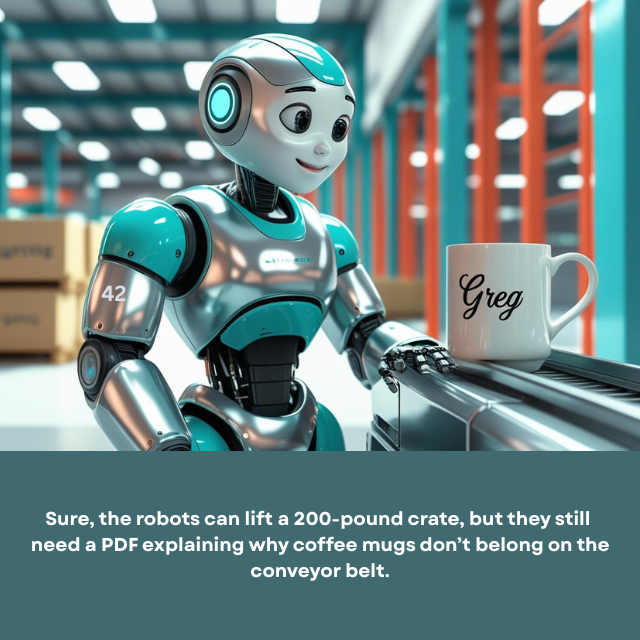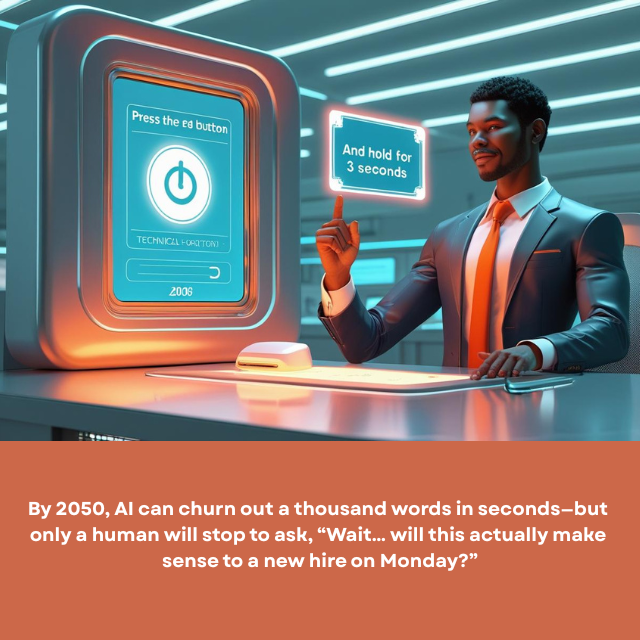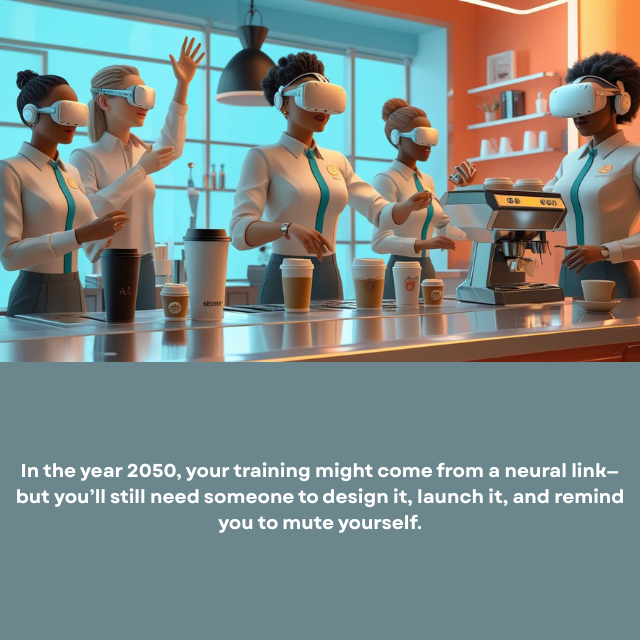- +1 (267) 368-7090
- contact@matcgroup.com
-
53 Knightsbridge Rd,
STE 216
Piscataway, NJ 08854.
It’s the year 2050. Labor Day parades now feature marching drones, the union hall has a Slack channel, and someone just called in “sick” because their AI assistant got a virus. (Again.)
But while the tools of labor have evolved, one thing hasn’t changed: work still needs people who know how to communicate clearly, teach effectively, and organize knowledge so it doesn’t vanish into the digital ether.
In this futuristic workplace filled with neural interfaces and holographic dashboards, writers, trainers, and knowledge architects aren’t just relevant – they’re essential.

The robots might lift the boxes, but someone has to document how the robots lift the boxes, what to do when they don’t, and why Greg from Maintenance keeps putting coffee mugs on the conveyor belt.
Knowledge workers will continue to shoulder the labor of:

By 2050, your fridge might order your groceries and negotiate your health insurance, but clear communication will still be the oil in the gears of progress. AI-generated text is fast, but it doesn’t always ask, “Wait, will this make sense to a new employee on day one?”
That’s where technical writers come in. We’ll still need humans who:

Learning in 2050 might involve VR goggles and brain-machine interfaces, but someone has to design the simulation and decide whether the learning objectives are actually, you know, being learned.
Instructional designers and corporate trainers will still:
And yes, someone will still have to remind people to mute themselves during virtual sessions.

Knowledge Architects Will Be the New Librarians of Labor
The sheer volume of data and information in the workplace is only going to grow (as will the folder named “Final_Final_FINAL_v3”). That’s why the future needs knowledge managers who can:
Without them, companies will lose productivity AND identity.
Even in a world of automation, cyborg technicians, and ambient holographic to-do lists, labor remains a deeply human act—especially the kind that teaches, documents, and connects.
So this Labor Day, whether you’re celebrating with burgers or bytes, take a moment to recognize the writers who make the instructions readable, the trainers who make the lessons stick, and the knowledge architects who keep the wisdom flowing.
“How AI Got Us Into Swordsmithing” and Other Tales of AI Mishaps
Why Training Employees in AI is Critical for Future-Proofing Your Business
How to Capture Institutional Knowledge Before it Walks Out the Door